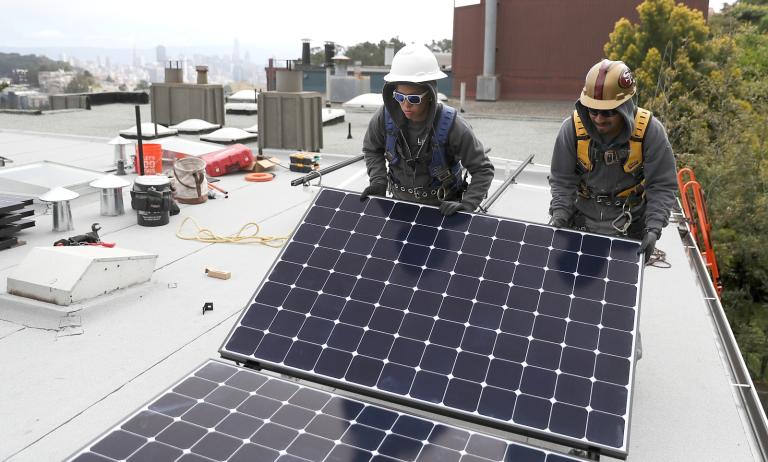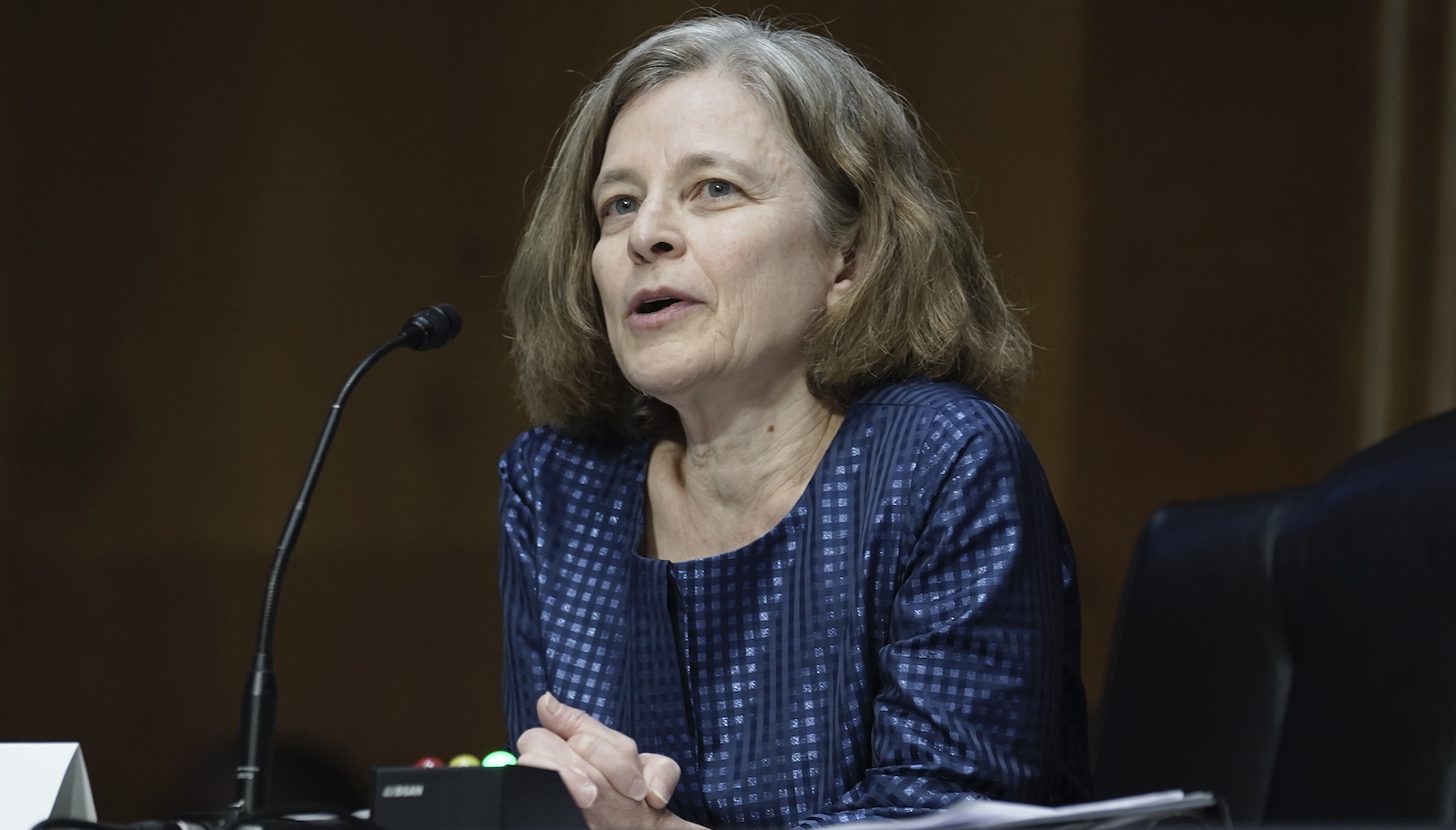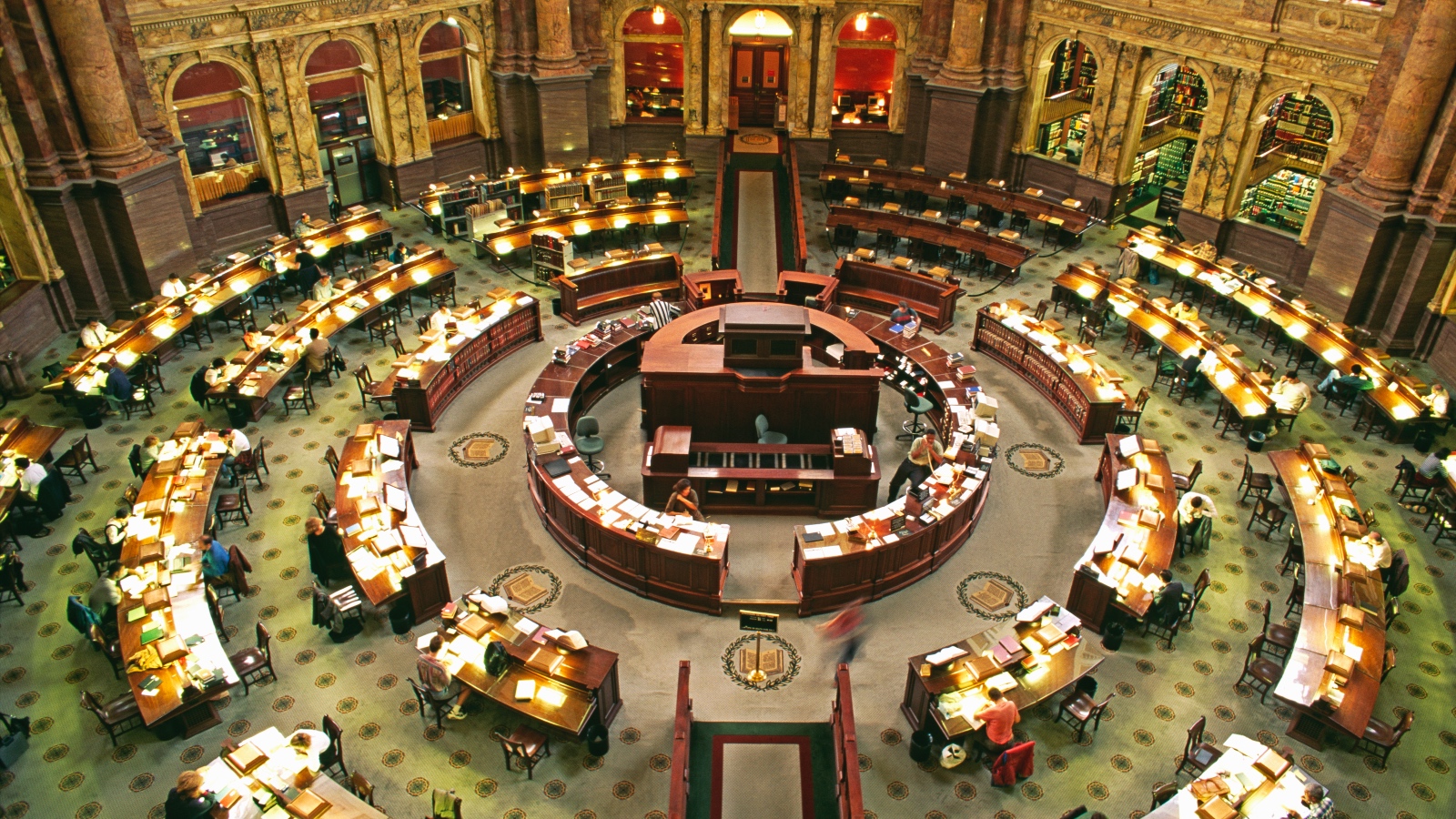The remaining paths for the Biden administration to usher in a new era of federal climate action are crumbling. The president’s signature climate legislation to fund clean energy, the Build Back Better Act, has been held up in the Senate for months. The Supreme Court is expected to curtail the Environmental Protection Agency’s power to regulate greenhouse gas emissions. And now, Sarah Bloom Raskin, a nominee to the Federal Reserve Board who aimed to prevent a climate change–fueled financial crisis, has been forced to withdraw.
On Monday, Senator Joe Manchin of West Virginia announced that he would not vote in favor of confirming Raskin as the Federal Reserve’s vice chair for supervision. With Raskin receiving zero support from Republicans, and Manchin representing the crucial 50th Democratic vote in the Senate, the announcement torpedoed her nomination. The reason? Manchin was worried Raskin had it in for the fossil fuel industry.
“Her previous public statements have failed to satisfactorily address my concerns about the critical importance of financing an all-of-the-above energy policy to meet our nation’s critical energy needs,” Manchin said in a statement.
When President Joe Biden nominated Raskin to be the Fed’s vice chair for supervision in January, he called her “among the most qualified nominees ever for the position.” Raskin had already served on the Fed Board for three and half years under President Barack Obama. The Senate voted her in unanimously in 2010. But this time around, Raskin “became the subject of relentless attacks by special interests,” primarily due to her position on climate change, she wrote in a sobering letter to Biden on Tuesday announcing her withdrawal.
Raskin has advocated for federal regulators to assess and mitigate climate risks to the U.S. financial system. Climate change poses not only physical threats to the economy via the damage wrought by drought, wildfires, and storms, but also what’s called “transition risk.” The shift to a low-carbon world is already underway, and banks that continue to fund fossil fuels risk ending up with assets that have no value. Raskin has suggested that financial regulators could help incentivize the shift away from carbon-intensive assets.
After her nomination was announced, 41 oil and gas trade associations wrote a letter to the Senate Banking Committee opposing Raskin. They accused her of having an “agenda at odds with the President’s goal of providing Americans with reliable, affordable energy,” and of scheming to “reshape the entire financial system in ways Congress never intended.”
Republican Senator Pat Toomey of Pennsylvania shared that opinion, accusing Raskin of wanting to “choke off credit to traditional energy companies.” Toomey led a revolt on the Banking Committee in which he and other Republicans repeatedly boycotted a vote on all five of Biden’s Fed nominees due to their disapproval of Raskin. Politico reported on Wednesday that it may have been Toomey who convinced Manchin to promise to vote nay.
But Manchin’s decision is not unexpected. Manchin’s pockets are lined with fossil fuel money — both from political donations and personal investments. Over the past decade, he’s earned $4.5 million from his stakes in two coal companies, the Intercept reports. In the 2021-2022 election cycle, he was the top recipient in Congress of donations from the coal, mining, natural gas, and oil industries. New Republic journalist Kate Aronoff reports that during a recent oil and gas conference in Houston, Manchin urged attendees to “demand more” from the members of Congress whose campaigns they help fund.
“We are witnessing a drive to make financial risk a tawdry political issue,” Raskin wrote in her letter to Biden on Tuesday. She stated frankly that her views on climate-related financial risks were mainstream. “Banks and insurance companies incorporate financial aspects of extreme weather events into their plans,” she wrote. “Central banks around the world have already begun acting on these issues.”
Raskin argued that a nominee who ignored the dangers of climate change, which are already so clear in daily life, “would be guilty of gross dereliction of duty.”
“The public understands that it will pay the price again for deliberate indifference by government to harsh scientific and economic truths,” she warned.
In a statement responding to Raskin’s withdrawal, Biden said he looks forward to “her future contributions to our country” and urged the Senate Banking Committee to confirm his four other Fed nominees.





